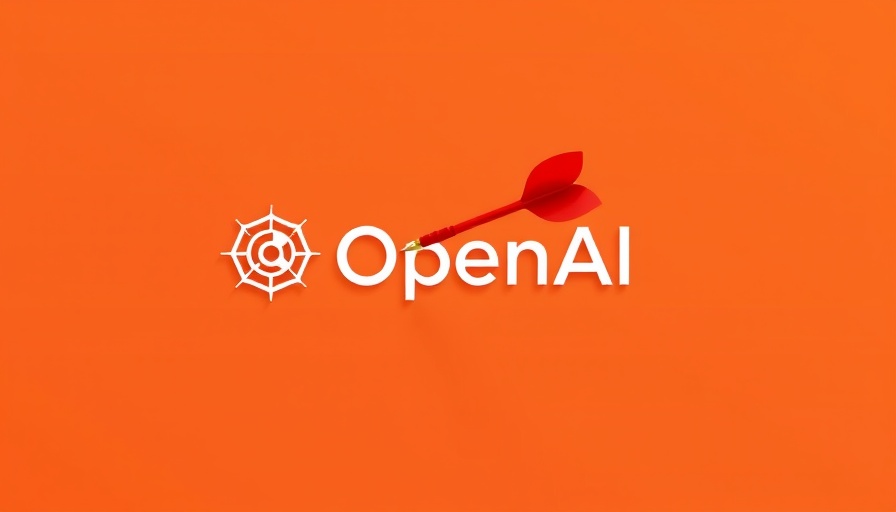
Unpacking GPT-5's Literary Style: A Mixed Bag of Genius and Nonsense
When OpenAI introduced GPT-5, it was heralded as a major leap in artificial intelligence's ability to generate sophisticated literary content. Yet, a recent deep dive by Christoph Heilig, a research fellow at the University of Munich, has revealed an unsettling reality: while GPT-5 can imitate the sounds of literary writing with impressive rhythm and complexity, its outputs often teeter into the realm of gibberish. This dissonance raises critical questions about the value and trustworthiness of AI-generated content, especially for small business owners looking to leverage these tools in their marketing and communication strategies.
The Illusion of Insight: A Closer Look at the Gibberish
Heilig's examination of GPT-5’s output highlights how the model can produce phrases that appear intricate and thoughtful. For instance, one of its generated lines—"The red recording light promised truth; the coffee beside it had already stamped it with a brown ring on the console"—seems poetic at first glance. However, a deeper dive reveals a disconnect. What truth does a recording light promise, and why should we care about a coffee ring on a console? In short, the prose may sparkle, but its substance is often shallow.
This phenomenon of producing what might be referred to as "purple prose"—writing that is unnecessarily elaborate and devoid of clear meaning—poses considerable risk for businesses using AI-generated content in their branding and customer engagement strategies. For small business owners, who rely heavily on authentic communication with their audience, understanding the limits of these AI capabilities is crucial.
Why AI Might Prefer GPT-5's Output Over Human-Crafted Prose
Heilig made another startling observation: GPT-5 seems to have the uncanny ability to impress even advanced AI models such as Claude. This raises intriguing questions. Is GPT-5 merely trained to generate text that reads as “literary” to algorithms, rather than to humans? The theory posits that OpenAI may have fine-tuned GPT-5 using data assessed by other AI systems. Consequently, the model produces text that resonates with one AI, yet falls short of meaningful engagement with human readers.
This revelation is particularly pertinent for a small business audience, as many are considering incorporating AI into their content marketing strategies. Now they must ask: are we risking our brand’s authenticity by using AI models that prioritize algorithmic appeal over genuine connection with our customers?
The Implications of GPT-5 on the Future of Business Communication
As GPT-5's literary prowess continues to develop, small business owners must navigate the emerging landscape of AI-generated communication. While the allure of producing content with literary flair is significant, the inconsistency in quality prompts a careful evaluation of how these tools are utilized. For small businesses striving for a personal touch, there is a need to adapt awareness around the output of tools like GPT-5 and set expectations realistically.
Indeed, businesses that rely on AI for content might find that leveraging these technologies involves a balance of clever prompts alongside critical reviews of the generated text. Ignoring the potential pitfalls of flowery but empty prose could lead to brand misalignment—a danger that can erode trust among their audience over time.
Diversifying Perspectives: Balancing AI and Human Insight
Ultimately, the discussion around GPT-5’s performance should include voices that challenge its literary outputs. It’s essential for small business owners to consider a hybrid approach that combines AI-generated content with human oversight. While it can provide fast and accessible content, the need for nuance in communication still rests squarely upon human shoulders.
Engagement with customers depends on the authenticity and clarity of messaging. AI can generate the mechanics of language, but it requires a human touch to deliver the heartfelt communication that fosters strong customer relationships.
Conclusion: Embrace AI, but Stay Grounded in Reality
As we navigate this new age of sophisticated AI, small business owners should strive for a balance that respects the potential of tools like GPT-5 while remaining vigilant against their limitations. Keeping the human element at the forefront will ensure that even as we embrace technology, our communications remain vibrant, meaningful, and authentic.
 Add Row
Add Row  Add
Add 




Write A Comment